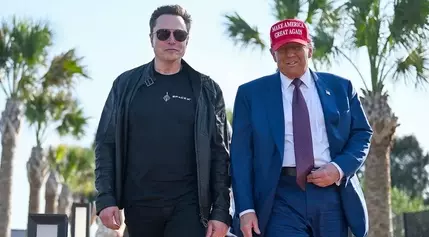In a recent social media discussion, billionaire entrepreneur Elon Musk has sparked debate by advocating for the increased immigration of highly skilled foreign workers to address a critical shortage in engineering talent within the United States. Musk's comments have drawn both support and criticism, highlighting the ongoing tension between economic growth and immigration policies. The tech mogul emphasized the need for top-tier talent to maintain America's competitive edge in industries like technology and semiconductors. He argued that recruiting global talent is essential for the nation's prosperity, likening it to assembling a championship-winning sports team. However, his stance has faced backlash from those who believe American workers should be prioritized.
Musk Urges More Skilled Immigrants to Address Engineering Shortage
In the midst of a heated debate over immigration policy, Elon Musk, the founder of SpaceX and Tesla, has taken to social media platforms to voice his concerns about the scarcity of top engineering talent in the United States. During a conversation on X, Musk expressed frustration over what he perceives as a "permanent shortage" of exceptional engineers, particularly in Silicon Valley. He highlighted that this shortage is a significant barrier to innovation and economic growth. Mario Nawfal, a prominent business influencer, echoed Musk's sentiments, noting that the U.S. semiconductor industry alone will require more than 160,000 engineers by 2032. Musk responded emphatically, suggesting that the actual number needed could be double that.
Musk drew an analogy between the U.S. economy and a professional sports team, asserting that to win championships, one must recruit the best talent available, regardless of their origin. He stressed that the current pool of highly motivated and talented engineers in the U.S. is insufficient. Musk also addressed critics who argue that companies should focus on hiring Americans first. He clarified that his companies do prioritize American hires but face significant challenges due to the stringent and time-consuming work visa process. Musk warned that forcing the world's best talent to join other nations would ultimately harm America's competitiveness.
The debate comes at a crucial time as President-elect Trump's administration considers changes to immigration policies. Indian-American venture capitalist Sriram Krishnan, recently appointed to an advisory role for AI, has urged Musk to persuade the president to lift caps on green cards for high-skilled workers. David Sacks, Trump's appointee for AI and cryptocurrency czar, defended Krishnan's position, emphasizing the importance of a merit-based system rather than unlimited immigration.
From a journalist's perspective, Musk's advocacy for increased skilled immigration underscores the complex interplay between economic needs and immigration policies. It raises important questions about how the U.S. can balance its desire for top-tier talent with the interests of its existing workforce. While Musk's arguments are compelling, they also highlight the need for a nuanced approach that addresses both immediate economic demands and long-term societal impacts.

